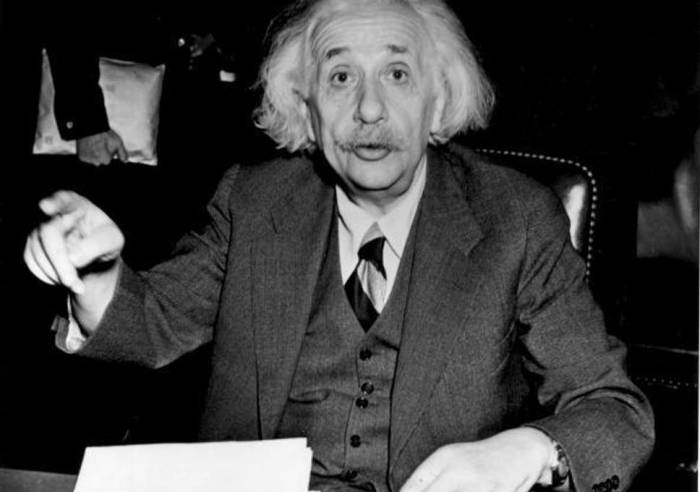In the private writings, the renowned physicist describes the Chinese as an “industrious, filthy, obtuse people”.
Einstein was not just known as a scientist, but as a champion of civil rights who used his platform to denounce the discrimination against African-Americans. Famously, he once referred to racism as “a disease of white people”.
He kept a diary as he toured China, Singapore, Hong Kong, Japan, Palestine and Spain between October 1922 and March 1923.
The private writings were published last week by Princeton University Press, which said they “reveal Einstein’s stereotyping of members of various nations and raise questions about his attitudes on race".
In one passage, the Nobel Prize-winning scientist describes the Chinese are “a peculiar herd-like nation… often more like automatons than people”, adding: “Even the children are spiritless and look lethargic.”
After writing of their “abundance of offspring” and “fecundity”, he goes on to say: “It would be a pity if these Chinese supplant all other races. For the likes of us the mere thought is unspeakably dreary.”
In another passage, he describes “bandit-like filthy Levantines” who board his ship during a stop at Port Said, Egypt.
“In the harbour, a swarm of rowing boats with screaming and gesticulating Levantines of every shade, who lunge at our ship. As if spewed from hell,” he wrote.
Ze’ev Rosenkranz, the book’s editor and assistant director of the Einstein Papers Project at the California Institute of Technology, told The Guardian: “I think a lot of comments strike us as pretty unpleasant – what he says about the Chinese in particular.
“They’re kind of in contrast to the public image of the great humanitarian icon. I think it’s quite a shock to read those and contrast them with his more public statements. They’re more off guard, he didn’t intend them for publication.”
In his preface to The Travel Diaries of Albert Einstein, Mr Rosenkranz says the diaries exhibit a “quirky style” and “acerbic quips” but also contain some “troublesome entries”.
“I began to ask myself: how could this humanist icon be the author of such passages?” Mr Rosenkranz writes.
He adds it “seems clear that Einstein has bought - to some extent - into the perceived threat of ‘the yellow peril’,” referring to the racist colonial trope that the people of East Asia were a threat to the western world.
Chanda Prescod-Weinstein, the cosmologist, science writer and equality campaigner, said Einstein’s racism was “shocking and disappointing”.
“I am both surprised and not surprised,” she tweeted. “Scientific ‘advance’ really does not go in tandem with social advances. Sometimes scientific success drags racism along with its interlocutors.”
Einstein toured Asia after being invited to speak in Japan shortly after being awarded the Nobel Prize in physics in 1921.
By contrast to his prejudice against the Chinese, Einstein speaks positively of the Japanese, who he praises as “unostentatious, decent, altogether very appealing”.
His diaries from the period have previously only been published in German as part of the 15-volume Collected Papers of Albert Einstein.
“The intention [of publishing diaries] is not salacious but rather a genuine attempt to understand what makes such celebrities tick,” said Mr Rosenkranz. ”This is particularly pertinent in Einstein’s case, where there is such a great discrepancy between the public image and the actual historical individual.”
More about: AlbertEinstein
















































